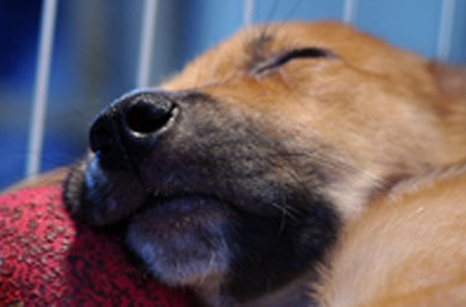
Congratulations on deciding to have your dog neutered. Neutering is the common term used to describe the surgical procedure known scientifically as castration. The benefits to your pets health and helping to reduce the pet overpopulation crisis makes this decision easier. There are
many advantages to having your male dog neutered.
They include:
- Reducing the risk of prostate cancer and prostatitis.
- Reducing the risk of hormone-related diseases such as perianal adenoma.
- Eliminating the risk of testicular cancer, the second most common cancer in intact dogs.
- Removing sexual urges, which usually decreases roaming behaviours.
- Reducing certain types of aggression.
The operation may be performed to treat testicular tumors and some prostate gland conditions. It is also used to control hormonal (testosterone)dependant diseases such as anal adenomas. Neutering may also be used in an attempt to treat certain forms of aggression.
As opposed to popular belief, many of the perceived disadvantages of neutering are false. The most quoted of these are that the dog will become fat, lazy and useless as a guard dog. Obesity is probably the most commonly quoted disadvantage of neutering. Obesity is the result of overfeeding and lack of physical activity. By regulating your dogs diet and caloric intake, you can prevent obesity in neutered or intact males. Neutering does not cause a change in personality, guarding instincts, intelligence, playfulness or affection. We recommend neutering your dog at around 6 months of age.
Neutering is considered a major operation and requires general anaesthesia. When your dog is admitted for surgery, he will be examined by the veterinarian performing the surgery, and pre-anaesthetic blood tests will be performed if you have chosen to do so. We also recommend intravenous fluids be given during and after surgery to provide a more stable anaesthesia and quicker recovery. After your pet is anaesthetized, a breathing tube will be placed in his trachea or windpipe. This will allow the delivery of oxygen and the gas anaesthetic directly into the lungs. The surgery consists of making a small incision in front of the scrotum and removing the testicles. Non-absorbable stitches are used to close the incision, which will need to be removed in 7 days if the traditional method was used, and in 14 days if the laser was used. The incision is treated with Laser Therapy post-operatively.
In general, complications are rare during the neutering procedure. With modern anaesthetics and monitoring equipment, the risk is very low. . However, as with all surgical procedures, there is always a small risk:
- Anaesthetic Complication- It is always possible that any pet could have an adverse reaction following the administration of any drug. Such cases are impossible to predict, but fortunately are extremely rare. Pre-operative bloodwork is a useful screening test that may detect pre-existing problems which could interfere with the pets ability to handle anaesthetic drugs.
It is important that you properly fast your dog prior to surgery according to our instructions. In addition, any signs of illness or previous medical history should be reported to us prior to any sedation, anaesthesia or surgery.
- Post Operative Infection- This may occur internally or around the incision wound. In most cases the infection can be controlled with antibiotics. This most commonly occurs when the dog licks the site excessively or is in a damp environment.
Rest and restriction of activity are the primary post-operative care you should provide. Most dogs can resume activity 7 to 14 days after surgery. Until then, leash outings, no swimming, bathing, running or climbing stairs and lots of rest are the rule.
Benefits to IV Fluids for Anaesthesia & Surgery
- Intravenous fluids help to maintain normal blood pressure under anaesthesia.
- Intravenous fluids provide venous access in emergency situations and help keep the organs perfused.
- Intravenous fluids result in a more stable anaesthesia, and a quicker recovery for our patients.
Benefits to Post Operative Laser Therapy
Laser Therapy reduces pain and inflammation, stimulates nerve regeneration, muscle relaxation and immune system response. This significantly reduces healing time.
Why Laser Surgery?
LESS PAIN – Laser energy seals nerve endings as it moves through tissue. Your pet feels less pain post-operatively.
LESS BLEEDING – The laser seals small blood vessels during surgery which allows us to perform surgeries with extraordinary precision. This also speeds some procedures reducing the amount of anesthesia needed.
LESS SWELLING – Laser energy does not crush, tear or bruise because only a beam of intense light contacts the tissue.


